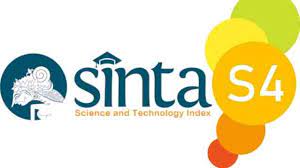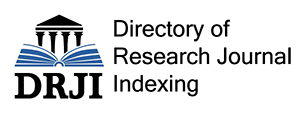Responding to The Challenges of The 2045 Golden Generation: Improving a Legal-Aware Golden Generation with a Cultural and Identity Education Approach
DOI:
https://doi.org/10.51276/edu.v4i2.412Keywords:
Culture, Identity Gold Generation, Legal AwareAbstract
The golden generation aware of the law is a reality that must be pursued by the people of Indonesia, considering the strong influence of globalization and the positive and negative impacts on the Indonesian nation. This study aimed to explore, study, and obtain an overview of increasing the legal awareness of the golden generation in culture and identity in responding to the challenges of the 2045 golden generation. The method used in this study was a qualitative approach using the case study method. The research location was STKIP Pasundan, Cimahi. Primary data were obtained from purposively selected sources of informants. Secondary data were obtained from library sources. They collect data using interviews, observation, documentation, and literature studies. The research results showed: (1) The strategy for increasing the golden generation to answer the challenges of the 2045 golden generation is to increase morality and creativity in the digital era through Citizenship Education Learning which teaches creativity in the digital era so that a law-aware culture is formed. (2) Improving the legal-aware golden generation is also carried out by strengthening their national identity, namely by various perspectives from a legal, entrepreneurial, and health perspective, and to create a legal-aware, creative, and planning-generation golden generation in 2045. This study was to increase the legal awareness of the golden generation to answer the challenges of the 2045 golden generation, which is a strategic step because it can increase student citizenship knowledge so that there is alignment between civic knowledge, civic skills, and civic disposition.
Downloads
Metrics
References
Abi, A. R. (2017). Paradigma Membangun Generasi Emas Indonesia Tahun 2045. Jurnal Ilmiah Pendidikan Pancasila dan Kewarganegaraan, 2(2), 85-90. https://doi.org/10.17977/um019v2i22017p085
Baluku, M. M., Matagi, L., Musanje, K., Kikooma, J. F., & Otto, K. (2019). Entrepreneurial Socialization and Psychological Capital: Cross-Cultural and Multigroup Analyses of Impact of Mentoring, Optimism, and Self-Efficacy on Entrepreneurial Intentions. Entrepreneurship Education and Pedagogy, 2(1), 5-42. https://doi.org/10.1177/2515127418818054
Belladonna, A. P., Tripuspita, N., & Sakung, N. T. (2022). Internalisasi Karakter Disiplin Peserta Didik Melalui Ekstrakurikuler Polisi Taruna (POLTAR). Jurnal Ilmiah Wahana Pendidikan, 8(21), 88-94. https://doi.org/10.5281/zenodo.7272821
Berger, P.L., & Luckmann, T. (1990). Tafsir Sosial atas Kenyataan, Risalah Tentang Sosiologi Pengetahuan. Jakarta: LP3ES
Berglund, K., Hytti, U., & Verduijn, K. (2020). Unsettling Entrepreneurship Education. Entrepreneurship Education and Pedagogy, 3(3), 208-213. https://doi.org/10.1177/2515127420921480
Branson, M. S. (1999). Belajar “Civic Education” dari Amerika (Terjemahan. Syarifudin dkk). Yogyakarta: LKIS
Brentnall, C. (2021). Competitive Enterprise Education: Developing a Concept. Entrepreneurship Education and Pedagogy, 4(3), 346–375. https://doi.org/10.1177/2515127419900486
Delaney, P. G., Harrington, K., & Toker, E. (2019). Undergraduate Student-Run Business Development Services Firms: a New Educational Opportunity and Growth Alternative for Small and Medium Enterprises. Entrepreneurship Education and Pedagogy, 2(2), 171-187. https://doi.org/10.1177/2515127418816289
Ensign, P. C., & Robinson, N. P. (2019). Tangent Host: an Uneasy Partnership. Entrepreneurship Education and Pedagogy, 2(4), 333–349. https://doi.org/10.1177/2515127418820637
Francis C., R., & Fraga, F. X. V. (2023). The New Paradigm Shift of Green Entrepreneurship Through Work Passion Among the Young Generation. SEDME (Small Enterprises Development, Management & Extension Journal), 50(1), 7–12. https://doi.org/10.1177/09708464221142434
Hadley, G. R. (2023). A Characterization and Pedagogical Analysis of Youth Entrepreneurship. Entrepreneurship Education and Pedagogy, 6(2), 223-250. https://doi.org/10.1177/25151274221096035
Hasudungan, A. N., & Kurniawan, Y. (2018). Meningkatkan Kesadaran Generasi Emas Indonesia dalam Menghadapi Era Revolusi Industri 4.0 Melalui Inovasi Digital Platform www. indonesia2045. org. In Prosiding Seminar Nasional Multidisiplin, 1, 51-58.
Hidayah, Y., Darmawan, C., & Malihah, E. (2020). Reformulating Civic Education as Political Education in Indonesia in the Convergence Era. In 2nd Annual Civic Education Conference (ACEC 2019), 367-375. Atlantis Press. https://doi.org/10.2991/assehr.k.200320.070
Hidayah, Y., Iskandar, R., Kusmayanti, I., & Saylendra, N. P. (2023). Building the Character of Unity Through a STEAM Approach in Elementary Schools. Jurnal Geuthèë: Penelitian Multidisiplin, 6(1), 44-50. https://doi.org/10.52626/jg.v6i1.197
Hidayah, Y., Ulfa, N., & Belladonna, P. (2022). Demokrasi Pancasila dalam Membangun Demokrasi “Sehat”. JISHUM: Jurnal Ilmu Sosial dan Humaniora, 1(2), 110-123. https://doi.org/10.57248/jishum.v1i2.25
Hoppe, M., & Namdar, K. (2023). Towards Entrepreneurship for a Cause: Educating Transformative Entrepreneurial Selves for a Better World. Entrepreneurship Education and Pedagogy, 0(0), 1-18. https://doi.org/10.1177/25151274221148222
Irfani, S., Riyanti, D., & Muharam, R. S. (2021). Rand Design Generasi Emas 2045: Tantangan dan Prospek Pendidikan Kewarganegaraan untuk Kemajuan Indonesia. Jurnal Penelitian Kebijakan Pendidikan, 14(2), 123-134. https://doi.org/10.24832/jpkp.v14i2.532
Iswanty, M. (2012). Pertanggungjawaban Medis Terhadap Terjadinya Abortus Provokatus Criminalis (Tinjauan Hukum Kesehatan dan Psikologi Hukum). FH Universitas Hasanuddin, 1(3).
Johnson, E. B. (2010). CTL (Contextual Teaching & Learning) Menjadikan Kegiatan Belajar- Mengajar Mengasyikan dan Bermakna. Bandung: Kaifa.
Maftuh, B. (2008). Internalisasi Nilai-Nilai Pancasila dan Nasionalisme Melalui Pendidikan Kewarganegaraan. Jurnal Educationist, 2(2), 134-144.
Miles, M. B., & Huberman, A. M. (2005). Qualitative Data Analysis (Terjemahan). Jakarta : UI Press.
Minhus, S., & Huie, L. (2022). Sustainability of Costume Appearance: Influence of Psychological and Social Values on the Bangladeshi Young Generation. SAGE Open, 12(2), 1-15. https://doi.org/10.1177/21582440221086608
Sunjaya, A. P., & Ardiansyah, S. (2023). Indonesia Emas Berkelanjutan 2045: Kumpulan Pemikiran Pelajar Indonesia Sedunia Seri 6 Kesehatan. BRIN: Badan Riset dan Inovasi Nasional, 1-191. https://doi.org/10.14203/press.364
Winarno, W. (2012). Karakter Warga Negara yang Baik dan Cerdas. PKn Progresif, 7(1), 54-62.
Wraae, B., Brush, C., & Nikou, S. (2022). The Entrepreneurship Educator: Understanding Role Identity. Entrepreneurship Education and Pedagogy, 5(1), 3–35. https://doi.org/10.1177/2515127420979662
Downloads
Published
How to Cite
Issue
Section
License
Copyright (c) 2023 Aprillio Poppy Belladonna, Yayuk Hidayah, Neneng Tripuspita

This work is licensed under a Creative Commons Attribution-NonCommercial-NoDerivatives 4.0 International License.












































